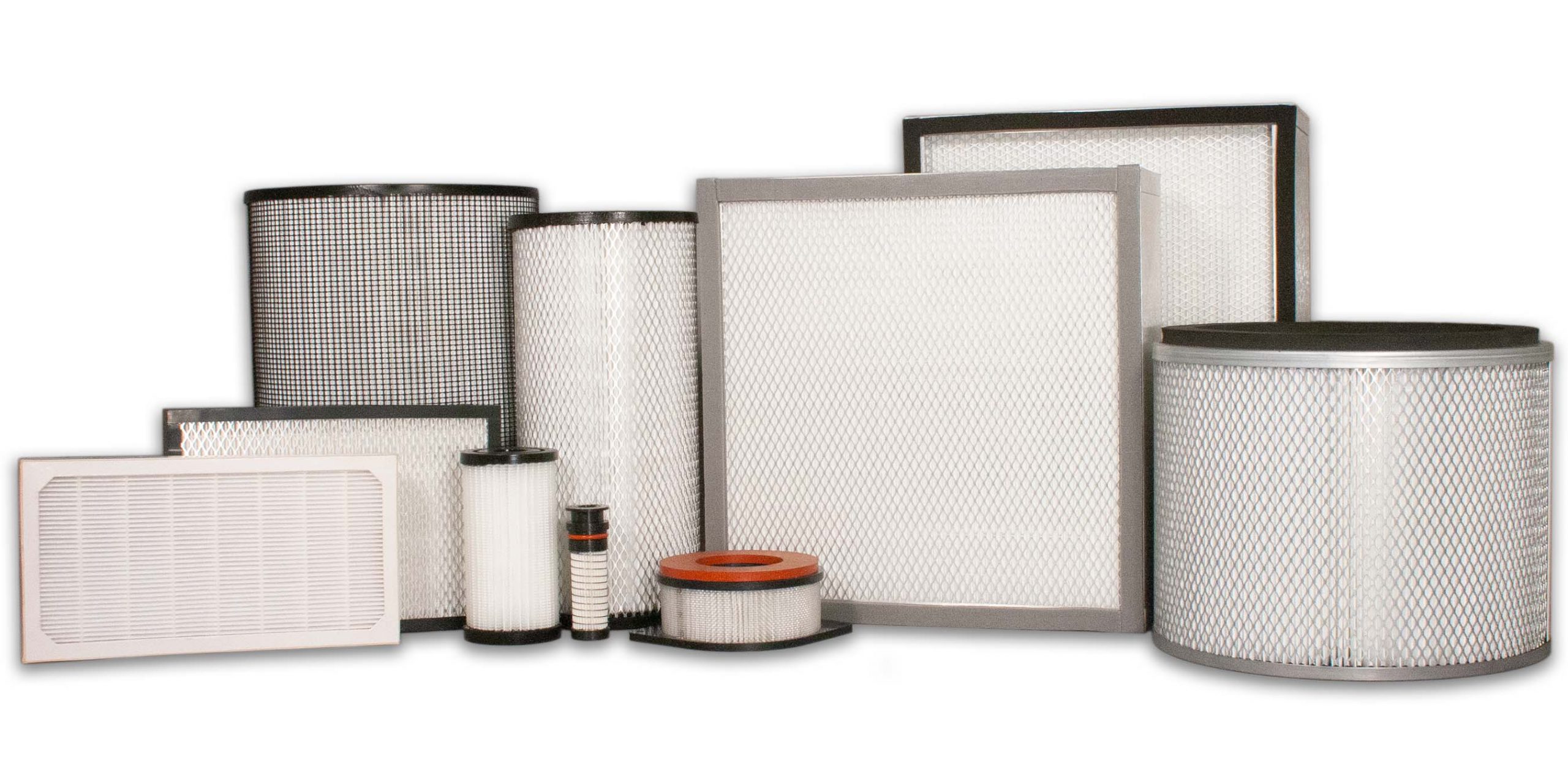How do HEPA filters Compare to Regular Filters?

Filtration Efficiency
One of the primary distinctions between HEPA filters and regular filters is their filtration efficiency. HEPA filters must capture at least 99.97% of particles that are 0.3 microns in diameter. In contrast, standard filters, such as those rated MERV 1-4, only capture about 20-30% of larger particles. This significant difference in efficiency underscores the superior performance of HEPA filters in environments where clean air is essential.
Particle Size Filtration
HEPA filters are engineered to trap very small particles, including dust, pollen, and smoke. Regular filters typically struggle with particles smaller than 10 microns, which includes many allergens and pollutants.

Airflow Resistance
While HEPA filters provide superior filtration, they often come with increased airflow resistance. Regular filters generally have lower resistance, which can lead to better airflow in certain applications. However, HEPA filters are designed to maintain adequate airflow while providing high filtration efficiency. Systems using HEPA filters may require more powerful fan systems to ensure sufficient airflow, particularly in larger spaces.
Application Suitability
The application of HEPA filters versus regular filters is another key comparison. HEPA filters are commonly used in hospitals, clean rooms, and laboratories, where air quality is critical.

Lifespan and Maintenance
HEPA filters tend to have a longer lifespan compared to regular filters, often lasting 6 to 12 months, depending on usage and environmental conditions. Regular filters usually need replacement every 1 to 3 months. This longer lifespan can offset the higher initial cost of HEPA filters, making them a more economical choice in the long run for environments requiring clean air.
Which is better, a HEPA filter or a cartridge filter?

When it comes to air purification, HEPA filters and cartridge filters serve different purposes. HEPA (High-Efficiency Particulate Air) filters are designed to capture at least 99.97% of particles that are 0.3 microns in size, making them highly effective for allergens, dust, and other airborne particles. On the other hand, cartridge filters are often used in HVAC systems and can vary in efficiency depending on their design and material. While HEPA filters excel in removing fine particles, cartridge filters may be more versatile in handling larger particles and odors. Ultimately, the choice between the two depends on specific needs, such as the type of contaminants present and the desired air quality.
What do HEPA filters not remove?

1. Gases and Odors
HEPA filters are not effective at removing gases, vapors, or odors from the air. They primarily target particulate matter, so for comprehensive air purification, additional filtration methods may be necessary.
2. Chemical Pollutants
HEPA filters do not capture chemical pollutants, which can be harmful to health. For this reason, combining HEPA filters with activated carbon filters can enhance air quality.

3. Large Particles
While HEPA filters are excellent for small particles, they may not be as effective for larger debris, such as pet hair or larger dust particles. Regular maintenance and pre-filters can help manage these larger particles.
4. Microorganisms
HEPA filters can trap bacteria and viruses, but they do not eliminate them. To ensure a higher level of air safety, UV light or other disinfection methods can be used in conjunction with HEPA filtration.
Why are HEPA filters so expensive?

Manufacturing Process
The production of HEPA filters involves advanced technology and materials, which contribute to their higher cost. The rigorous testing and certification processes also add to the expense.
Quality Assurance
HEPA filters must meet strict standards to ensure their efficiency. This quality assurance process requires significant investment, which is reflected in the price.
Do HEPA filters really clean the air?

Effectiveness Against Particles
HEPA filters are highly effective at removing airborne particles, including allergens, dust, and smoke. Their ability to capture such a high percentage of particles makes them a popular choice for improving indoor air quality.
Limitations
While HEPA filters excel at particulate removal, they do not address all air quality issues. For comprehensive air purification, it is essential to consider additional filtration methods for gases and odors.

Maintenance Importance
To maintain their effectiveness, HEPA filters require regular replacement and maintenance. Neglecting this can lead to reduced performance and air quality, emphasizing the importance of proper care.
Overall Air Quality Improvement
Incorporating HEPA filters into air purification systems can significantly enhance indoor air quality, contributing to a healthier living environment. Their role in reducing allergens and pollutants is crucial for overall well-being.
 +86 18186671616
+86 18186671616 Jason@cleanroomequips.com
Jason@cleanroomequips.com
 MENU
MENU


